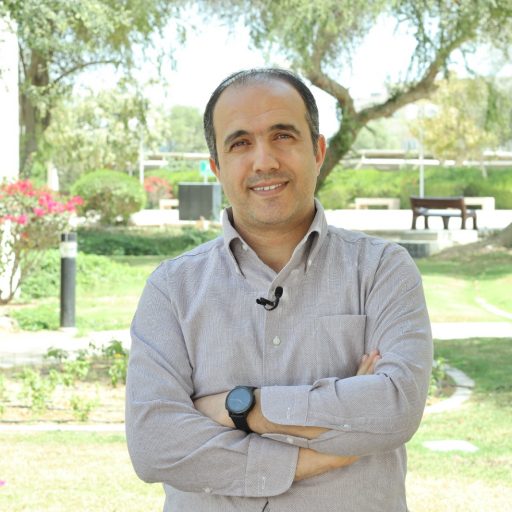- Advanced Traffic Engineering: Breakdown and bottleneck analysis, capacity and LOS, traffic design of road intersections, road signing and road markings, design of car parks.
- Highway Capacity Analysis: Covers capacity analysis of all highways and intersections; design and analysis of traffic signals including warrants, cycle length, timing, phasing and coordination; fundamentals and hand-on application of existing tools and software, and laboratory assignment are included.
- Urban Transportation Planning/Modeling: Covers transportation planning processes, transportation land-use interaction, travel evaluation and demand estimation, traffic generation theories and assignment models, and transit analysis.
- Traffic Safety Analysis: This course addresses the concepts for performing traffic safety analyses, crash data collection and database management, crash data analysis, road safety audits (RSA), identifying safety deficiencies and countermeasures, before-after studies, traffic conflicts, and crash reduction factors.
- Geometric Design of Highways: This course covers the theory and application of street, highway, and intersection design. It also provides an overview of geometric design concepts including functional classification of highways, horizontal and vertical alignment design, cross-section elements, intersection design, design of auxiliary lanes, and access management and control.
Teaching & Supervision
Graduate Level Courses
Undergraduate Level Courses
- Transportation Engineering (I): Human, vehicle and road environment interactions, geometric design of horizontal and vertical alignments, pavement design (flexible and rigid).
- Transportation Engineering (II): Traffic control and operation, traffic studies, intersection control and design, signalization, traffic flow theory, bottleneck and capacity concepts.
- Special Topics in Traffic Engineering: Advanced and emerging issues related to traffic control and operation, ITS, traffic safety, and sustainable transportation systems.
- Surveying for Construction & Surveying for Architects: Surveying measurements, Vertical Distance Measurements, leveling procedure and computations, profiles and cross sections. Horizontal Distance Measurements (EDM): Taping, Electronic Distance Measurements. Angular Measurements, Theodolites and total stations. Traverse Computations and adjustment – determination of areas and volumes.
- Statics: Basic concepts and principles of mechanics: vector algebra; equilibrium of particles and rigid bodies, moments and couples, beams, trusses, frames, and machines; internal forces; shear and bending moment diagrams in beams; friction and its applications, centroid and center of gravity of lines areas, and volumes; moment of inertia and radius of gyration.
- Strength of Materials: Brief description of the content of the course (catalog description): External forces and concept of stress. Stresses and strains, axial loading and axial deformation, Hook’s law, statically indeterminate members, Stresses due to temperature. Torsion. Internal forces in beams, pure bending. Transverse loading and shear stresses in beams and thin-walled pressure vessels. Multiaxial loading. Transformation of stresses and strains. Principal stresses and strains. Axially compressed members and buckling of columns. Lab session and experiments.
Supervision of Graduate Students
Doctoral Students
- Main Advisor PhD Student: Mustafa Almallah,” Modeling and analysis of road safety in residential areas using driving simulator”, expected completion, Dec 2023.
- Main Advisor PhD Student: Anas Nemer Mohammad, “Development of Advanced Framework and Prediction Models for Evaluating MaaS Architecture toward Sustainable Transport”, expected completion, Jun 2024.
- Co-advisor PhD Student: Shabna SayedMohammed, “Multidimensional Modeling and Assessment of Crash Risk Factors for Food Delivery Riders Using Subjective and Naturalistic Driving Behavior Data”, Oct 2025.
- PhD thesis committee member and examination Committee member: Wondwesen Girma Mamo, “Examining Driving Behaviour of Adults with Autism Spectrum Disorder to Develop and Evaluate an Innovative Driving Instructor Training Program in Qatar”, Hasselt University, expected completion in Jun 2024.
- PhD thesis committee member and examination Committee member: Hélène Dirix, “Examining Driving Behavior of Adults with Higher Functioning Autism Spectrum Disorder in Belgium”, Hasselt University, expected completion in Jun 2024.
- PhD thesis committee member and examination Committee member: Nora Reinolsmann, “Design and implementation strategies of Intelligent Transportation Systems on expressways: tactical and strategic approaches to influence driver behavior”, Hasselt University, Completed in Nov 2020.
- PhD thesis committee member and examination Committee member: Qinaat Hussain, “Evaluating the traffic safety and efficiency of different innovative countermeasures on urban roads using driving simulation”, Hasselt University, completed in Nov 2020.
Mater Students
- Main Advisor Master Student: Mohammad Elsayyad, “Analysis of pedestrian behavior at marked mid-block crosswalk in the State of Qatar” expected completion, Dec 2022.
- Main Advisor Master Student: Khaled Aboeleneen, “Maladaptive driving styles among Karwa professional drivers in the State of Qatar – Driving simulator study” expected completion, Dec 2022.
- Co-advisor Master Student: Mohammed Haroon, “Impact of Speed Hump and Speed Table on Noise Pollution”, Dec 2022.
- Main Advisor Master Student: Mustafa Almallah, “Development of Variable Message Sings Strategies for Traffic Management at Work Zones”, April 2020.
- Main Advisor Master Student: Naeem Albeitjali, “Analysis of the Capacity of Single Lane Roundabout Considering Local Driver Behaviour in the State of Qatar”, April 2020.
- Main Advisor Master thesis: Abdelrahman Abuhejleh, “Examining the Preference for Autonomous Vehicle (AV) among Residents in the State of Qatar”, November 2019.
- Co-advisor Master Student: Moath Qasem, “Heavy Metal Concentrations in Roadside Soils in Qatar”, May 2019.
- Main Advisor Master Student: Muath Najjar, “The Effectiveness of Applying Dynamic Lane Assignment at All Approaches of Signalized Intersections”. May, 2015
- Co-advisor Master Student: Mohammed Al-Turki, “Laboratory Evaluation of Local Dense Graded GRM Asphalt Mixture”, May 2015
- Co-advisor Master Student: Md. Ahsan Habib, “Eco-friendly Modification of Gulf Asphalt by Using Recycled Plastic Waste”, November 2015
